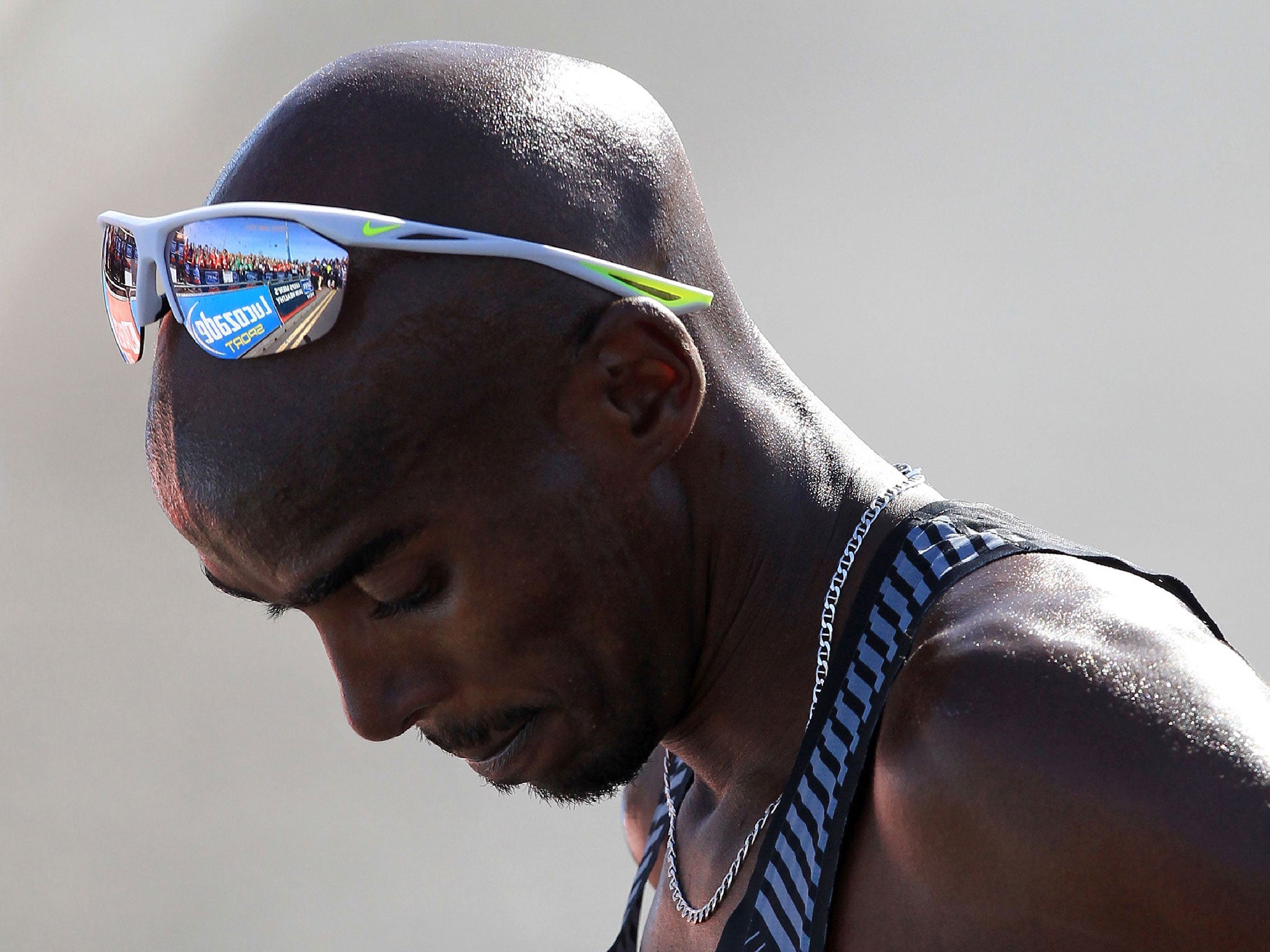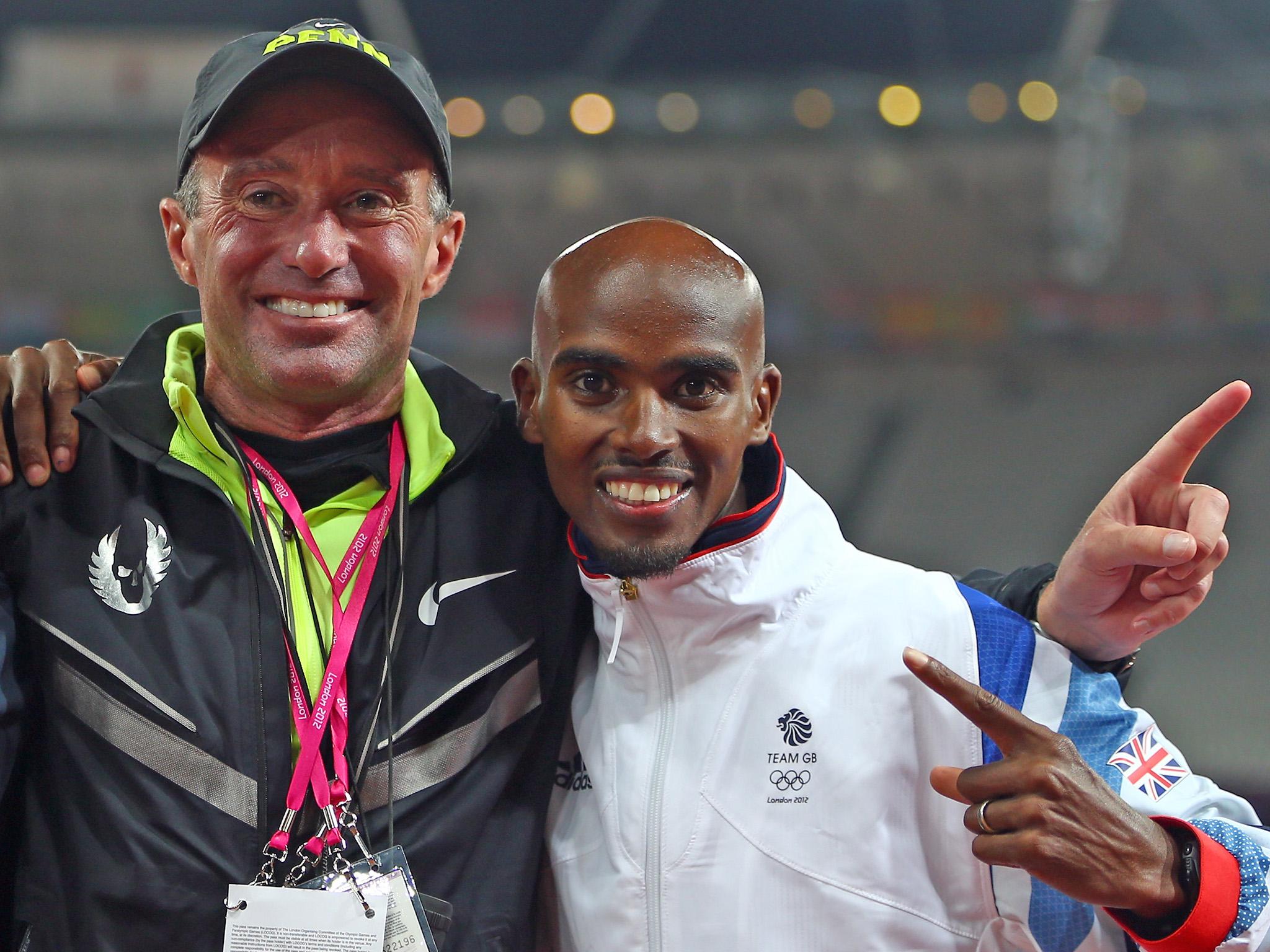Mo Farah expresses frustration over alleged links with doping allegations against coach Alberto Salazar
'I am a clean athlete. It is upsetting that some parts of the media, despite the clear facts, continue to try to associate me with allegations of drug misuse'

Your support helps us to tell the story
From reproductive rights to climate change to Big Tech, The Independent is on the ground when the story is developing. Whether it's investigating the financials of Elon Musk's pro-Trump PAC or producing our latest documentary, 'The A Word', which shines a light on the American women fighting for reproductive rights, we know how important it is to parse out the facts from the messaging.
At such a critical moment in US history, we need reporters on the ground. Your donation allows us to keep sending journalists to speak to both sides of the story.
The Independent is trusted by Americans across the entire political spectrum. And unlike many other quality news outlets, we choose not to lock Americans out of our reporting and analysis with paywalls. We believe quality journalism should be available to everyone, paid for by those who can afford it.
Your support makes all the difference.Athletics champion Mo Farah has expressed “deep frustration” over media reports linking him with allegations of doping made against his coach Alberto Salazar.
In a statement published on his Facebook page on Sunday, Mr Farah asserted he is a “clean athlete” who has “never” broken the rules surrounding substances, methods and dosages, and described associations made between him and drug misuse allegations in the media as “upsetting” and “deeply frustrating”.
It followed reports in the Sunday Times about a leaked report by the United States Anti-Doping Agency (Usada) alleging that Mr Salazar, the head coach at the Nike Oregon Project in Portland, may have abused prescription medicines and used prohibited fusions to boost testosterone levels in his athletes.
Mr Farah is not thought to have done anything wrong as he was only administered the supplement on one occasion, but his name was prominent in the media coverage surrounding the leaked report.
The athlete said in his statement: “It’s deeply frustrating that I’m having to make an announcement on this subject. I am a clean athlete who has never broken the rules in regards to substances, methods or dosages and it is upsetting that some parts of the media, despite the clear facts, continue to try to associate me with allegations of drug misuse.
“I’m unclear as to the Sunday Times’s motivations towards me but I do understand that using my name and profile makes the story more interesting, but it’s entirely unfair to make assertions when it is clear from their own statements that I have done nothing wrong.”
Mr Farah, who has won Olympic gold medals in both the 5,000 and 10,000 metre track races, went on to condemn the way in which allegations of doping in athletics were being dealt with, which he claimed allowed the media to act as the “judge and jury”.
“As I’ve said many times before, we all should do everything we can to have a clean sport and it is entirely right that anyone who breaks the rules should be punished,” Mr Farah added.
“However, this should be done through proper process and if Usada or any other anti-doping body has evidence of wrongdoing they should publish it and take action rather than allow the media to be judge and jury.”
Mr Farah’s words echo remarks he made two years ago when, following accusations against Mr Salazar by the BBC’s Panorama programme that he was violating several anti-doping rules, the athlete expressed anger at the way his name had “been dragged through the mud”. He had backed his coach at the time and said he would continue to work with him.
The report citing the recent allegations, which was written in March 2016 and reportedly leaked by Russian hacking group Fancy Bears, suggested Mr Salazar had given athletes secret infusions of a research supplement based on the chemical L-carnitine.

It alleged the infusions given by intravenous drip to six top American runners training with Mr Salazar “almost certainly” broke anti-doping rules.
Mr Farah was among athletes at the Nike Oregon Project in Portland who were given prescription drugs when they had no medical need, the report stated, adding that Mr Salazar had taken “egregious risks” and abused prescription rules by persuading the athletes to take potentially dangerous doses of medication he believed would boost their testosterone levels.
Mr Farah’s British doctors intervened because they were concerned about the effects on his health, according to the report.
Last year, Mr Farah was questioned after winning Olympic 10,000m gold about why he has associations with three controversial coaches including Mr Salazar, who at the time was being investigated by the US Anti-Doping Agency. He told reporters at the time: “I believe in clean sports and you do what you can. But you only control yourself.”
Join our commenting forum
Join thought-provoking conversations, follow other Independent readers and see their replies
Comments